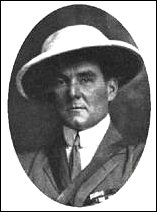I am wondering if any of you have heard what I have the past couple weeks. As an avid NPR listener (junkie), Morning Edition, All Things Considered, and all the other shows are playing constantly in my home as a kind of thinking person's white noise. Along with the astounding content of the programming, of course, is the astounding quality of the presentation; cool, sophisticated, and utterly lacking in blemishes or any colloquial speech patterns.
But I have noticed recently the rare "uhh," awkward pause, or other linguistic potholes that the rest of the known world includes in every conversation, in Morning Edition and other shows. Are NPR presenters becoming human at last?
Well, the answer might be that they aren't editing with as heavy a hand as they did previously. On December 31, WNYC's On The Media gave us an inside look at the editing practices of NPR with "Pulling Back the Curtain." A portion of the transcript reveals the secret of the NPR magic:
JOHN SOLOMON: While many public radio programs --particularly call-in shows -- are live, I was surprised to find out that newsmaker interviews for the daily NPR national news shows, Morning Edition and All Things Considered, are often not. Usually they are pre-taped and quickly edited down. Likewise, I was stunned when I learned that the main Fresh Air interview is actually condensed from a longer Q&A, and at times the Car Talk Guys will edit in some extra laughs kept on file.
Is the more "linguistically humane" NPR to be standard fare in the future? Or will they revert to the polish of yesteryear? I'll be listening.
Subscribe to:
Post Comments (Atom)

No comments:
Post a Comment